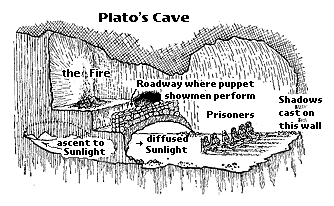My encounters with practical writing books has been mostly a disappointing affair, but perhaps this is because I have needed help on multiple fronts. No single style book was going to be able to lift me from the stultifying confusion that would paralyze me when writing an academic paper. I needed medicine. I needed intervention. No magic book-bullet came to relieve me of my misery.
What came instead was a trickle of ideas, dispersed across themes of reading, procrastination, time management, and ego development. The following bibliography, grouped by theme and annotated, is a starter-list relevant to an academic writer looking for advice or comfort. It is quite a list, so maybe you just want to jump in and report: What books have helped you become a stronger writer? A stronger person?
Holly’s Academic Writing How-To Bibliography
QUESTIONING THE TEXT
Adler, Mortimer Jerome, and Charles Lincoln Van Doren. How to Read a Book: The Classic Guide to Intelligent Reading. Simon and Schuster, 1972
As it advertises, compendium of advice on active reading and understanding difficult books. This how-to meticulously maps reading and notetaking strategies, as well as argues for the pleasures of being challenged. 12 rules for reading are idealized but the message of interactive, life long practice of reading makes advice sensible. Worth the effort. Index.
Booth, Wayne C., Gregory G. Colomb, and Joseph M. Williams. The Craft of Research. Third Edition. Chicago: University of Chicago Press, 2008
Classic style book has gems for grads. Write as you go. Revise quickly by scanning the page and make concepts the main characters of your argument. Warrants are the combination of claims and reasons or conditions and consequences, and these are essential for making academic arguments. (page 152-170) Third edition is sprinkled with anxiety-calmers, like “manage the unavoidable problem of inexperience” page 66.
Cioffi, Frank. The Imaginative Argument: A Practical Manifesto for Writers, n.d.
Details what makes an argument worth the time to write and read: a personal investment and hook that a reader can see why it matters. Useful first for writing about fiction, but also applicable for generating plausible, interesting arguments from texts. Bibliography. Index.
Harvey, Gordon. Writing with Sources: A Guide for Students. Second Edition. Hackett Pub. Co., 2008
Other’s writing is a part of our own writing. Integrating sources of ideas is part of the academic authority complex that demands we connect our teachers and others to our own ideas. Writing is assigned and evaluated by other readers who want to see who has aided one’s thinking. This college-style handbook makes the boundaries clearer for how to paraphrase and what to consider as valuable. Combine this with imperative that these are IDEALS and are learned through practice and approximation. Bibliography.
Lanham, Richard A. Style: An Anti-Textbook. Second Edition. Philadelphia: Paul Dry Books, 2007
The quest for clarity and self-expression through the verbal surface. Emphasis that there are different styles to writing and that this is a good thing: not all writing should be succinct or functional only. Good Bibliography.
Reading to Write: Exploring Cognitive and Social Process. New York: Oxford University Press, 1990
Technical language arts research text for discussion what cues first year undergrad students pick up on or need for understanding and interpreting writing assignments. Social science research gives background and evidence for techniques. Conclusions are few but solid for defending disconnect between teacher perception of assignments and instruction and the product-oriented, rule-bound environment of schools. sum: writing is an event AND a product. Bibliography. Index.
Weston, Anthony. A Rulebook for Arguments. Fourth. Indianapolis: Hackett Pub. Co., 2009
A slim book with 45 timeless rules for making an argument, including the need to identify your premises and to include counterexamples. Also information on what constitutes good sources and common logical fallacies. Useful for reviewing the elements of argument when graduate papers require argument and it seems like all you can write is description.
WRITING BLOCKS: THE INNER RESISTANCE TO WRITING
Burka, Jane B., and Lenora M. Yuen. Procrastination: Why You Do It, What to Do About It. New York: Perseus, 1988
Useful to recognizing the foundations for procrastinating behavior, family sources, habits built over time. My psychological than Overcoming Procrastination.
Fiore, Neil. Overcoming Procrastination: Practice the Now Habit and Guilt-Free Play. New York: MJF Books, 1989
Effective practices for reasonable scheduling and rewards. Useful for recognizing the self-talk and the anxiety that lies behind not starting projects or not finishing them. Major ideas: scheduling play first, the two-minute meditation to start hard projects, the need to start and keep starting. Bibliography.
Nelson, Victoria. On Writer’s Block: A New Approach to Creativity. Boston: Houghton Mifflin Company, 1993
Sympathetic book to blocked writers. Visualizes the block as instrumental to progress and relevant to the content of writing. Smart about the typical excuses and explanations for blocks, the author directs reader to the unconscious at work and how a block is a protection. Outlines conditions that create blocks such as projects that are ill conceived or that are beyond one’s current capacity. Addressed to fiction but relevant for academic writing. First chapter “What Writer’s Block Means” sends strong message of support. Index.
Pressfield, Steven. The War of Art: Break Through the Blocks and Win Your Inner Creative Battles. New York: Warner Books, 2002
Fiction writer puts his method of work and philosophy out there to support others. Aphorisms remind reader that resistance will arise in any situation of creative challenge.Cheerleading style encourages reader to meet the resistance with courage, energy, and adventurous spirit. Spiritual message is to bolster the self that is larger than any one fear. (no index or bib).
Silvia, Paul J. How to Write a Lot: A Practical Guide to Productive Academic Writing. Washington, D.C.: American Psychological Association, 2007
Psychology PhD with psych framework for academic writing. Not as helpful as other writing books because it only deals with surface problems. Advice includes creating a daily schedule and listing manageable goals. Writing groups are also discussed. Like Tara Gray’s book but not as good. Bibliography.
Staw, Jane Anne. Unstuck: A Supportive and Practical Guide to Working Through Writer’s Block, n.d.
General introduction to writer’s block from primarily fiction writing perspective. Useful for experiments and workshop starters for getting unstuck and thinking about one’s project through different lenses. Author is a private coach and a college writing adjunct teacher. Key messages to the stuck writer include giving oneself permission and authority to write and feeling safe to share her voice. Index.
Todd, Sharon, ed. Learning Desire : Perspectives on Pedagogy, Culture, and the Unsaid. New York: Routledge, 1997
Edited volume of essays on higher education with an emphasis on psychoanalysis and Levinas. Particularly useful for unpacking the complex relation of authority in the classroom and parental authority, sexual development, and knowledge ascathexis.
WRITING TIME: BUILDING DOABLE PLANS
Allen, David. Getting Things Done: The Art of Stress Free Productivity. New York: Penguin, 2002
Best time management book I’ve read. Applies to scholars because it reminds about the consequences of broken promises and the need to repair them slowly to build confidence in productivity. Comprensive system for time and ideas is doable and thus, inspires trust in author.
Bolker, Joan. Writing Your Dissertation in Fifteen Minutes a Day: A Guide to Starting, Revising, and Finishing Your Doctoral Thesis. New York: Henry Holt, 1998
Fundamental message about the unique genre and anxiety that accompanies the independent thinking and working of a diss. Important concepts include Zero Draft, getting an advisor, scheduling consistent work times and prioritzing relaxation for the long haul. Written with kindness and humor.
Campell, William E. The Power to Learn: Helping Yourself to College Success. Belmont, CA: Wadsworth, 1997
Simple but thorough guide for new college students, this book directs one through the strange expectations of college-level learning and thinking. Like “Straight-A” book but earlier and less edgy. I found this useful when I didn’t know the basics of what to do to capture my grad life, like “keep a journal as a loose-leaf binder to collect and organize reactions to ideas” and that it isn’t what you write or what you review, but THAT you write. And this helps thinking and memory.
Gleeson, Kerry. The Personal Efficiency Program: How to Get Organized to Do More Work in Less Time. New York: John Wiley and Sons, 1994
Classic time management book with so many components that it is exhausting to imagine it all coming together, but it seems desirable and a fantasy to meet the fear and anxiety of the disorganized person. GTD system is similar but more approachable. Notice the appeal to manage time–and the time it takes to learn good habits. Notice also the theme of being flexible/plastic in one’s habits and willingness to start or face the hard or new task.
Newport, Cal. How To Become a Straight-A Student: Unconvential Strategies Real College Students Use to Score High While Studying Less, n.d.
Time management to plan school projects and get them done hassle free. Layout is clean and inspires through simplicity. Key ideas is to keep energy up and keep going through a long haul by setting up mini projects through a day that one completes with satisfaction, and thus, inspired to work more. three sections: time, note taking, essay writing.
Semenza, Gregory Colon. Graduate Study for the 21st Century: How to Build an Academic Career in the Humanities. New York: Palgrave, 2005
Thorough summary of all elements of grad program that need negotiated. Very helpful in listing typical arguments in seminar papers. Also useiful for cultivating good judgment because it outlines what to expect.
Zerubavel, Eviatar. The Clockwork Muse: A Practical Guide to Writing Theses, Dissertations, and Books, n.d.
Emphasizes the schedule and the dedicated time. Author writes a book SEVERAL times, meaning, several drafts are rewritten completely.
STRENGTHENING THE WRITING SELF
Needleman, Carla. The Work of Craft: An Inquiry into the Natuer of Crafts and Craftsmanship. New York: Avon Books, 1979
Craft is an engagement with a material that teaches us about the limitations. Contrasted to creation, craft demands reworking and return to the work. Ceramics, weaving, and woodworking are discussed, with a commentary about teaching. The need for a “third term” beyond teacher and student to serve as a stablizing focus point is a useful correction to a student-centered model of teaching. (no index, no bibliography).
Palmer, Brooks. Clutter Busting: Letting Go of What’s Holding You Back. Novato, CA: New World Library, 2009
Connects (for me) the material to the mental: that when there is a lot of material confusion, there is mental confusion. Also, that letting go of material things can clarify what needs to be acted on now and what can wait for another stage of life. The premise is that we will have what we need when we need it and thus, don’t need to hold on. Good imaginative exercises to see stuff through the “need it now” lens. Useful also for computer clutter and books as valuing others ideas above your own.
Richo, David. How to Be an Adult: A Handbook on Psychological and Spiritual Integration. Mahwah, NY: Paulist Press, 1991
Jungian therapist uses tightly organized program for grieving parenting one did not receive and gives direction for what behavior needs cultivation to take full responsibility for one’s life and choices. Methods include how to admit anger and fear into one’s experience without being ruled by it. Focus on intergrating shadow material and understanding project. Bibliography. Index.
Salzberg, Sharon. Faith: Trusting Your Own Deepest Experience. New York: Riverhead Books, 2002
Written by a Buddhist meditation teacher, this book undoes faith from dogmatism.
Tolle, Eckhart. The Power of Now: A Guide To Spiritual Enlightenment. Novato, CA: New World Library, 1999
Using a dialogue format, Tolle challenges convential principles about time and the human subject to unfold a spiritual principle about the Now–a place in time that affords freedom and opportunity and peace.
Walker, C. Eugene. Learn to Relax: 13 Ways to Reduce Tension. Englewood Cliffs, NJ: Prentice Hall, 1975
If writing is anxiety producing, it is good to have some general methods for reducing anxiety. Separating anxiety out from writing as a separate aspect of experience can open the space to cultivate a non-anxious approach to difficulties on the whole. While an old book, it is not dated. Index.







